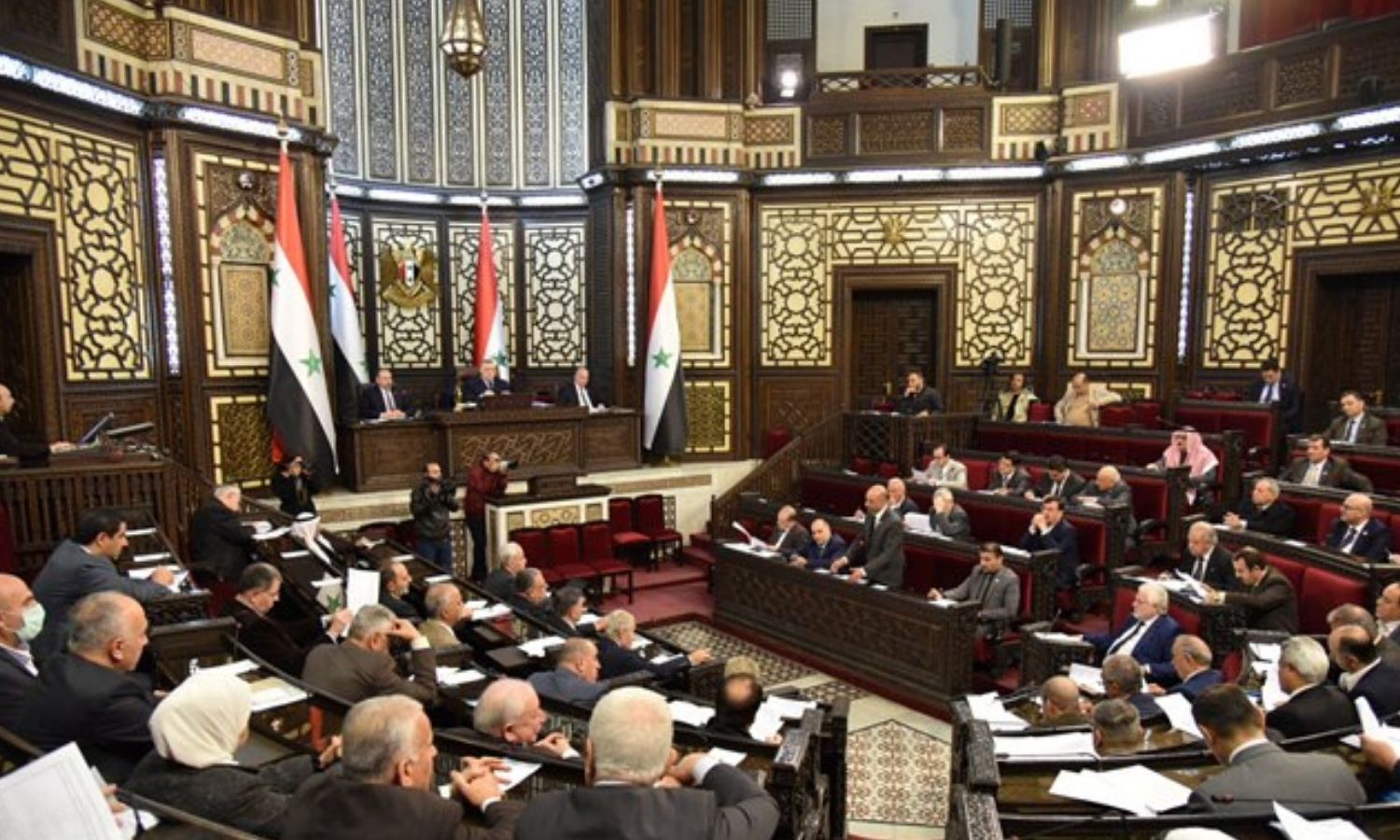



The judicial nomination committees under the Syrian regime started today, Monday, May 20th, to receive applications for candidacy in the upcoming People’s Assembly elections scheduled for mid-July. The regime’s media described it as an “important event” after the “success” of the recent Baath party elections.
Jihad Murad, the head of the Supreme Judicial Electoral Committee, stated in a report conveyed by SANA (the official Syrian news agency) on Sunday, May 19th, that the submission of candidacy applications for membership in the People’s Assembly for the fourth legislative term begins today, Monday, and will continue for seven days.
He added that the sub-judicial nomination committees in the provinces have completed the necessary arrangements to receive candidate applications. He pointed out that “during this period, nomination committees will be present in the provincial centers, where their task is to legally analyze the nomination applications to determine if a candidate meets the legal requirements stipulated in Article 39 of the General Election Law No. 5 of 2014.”
Murad also clarified that the task of nomination committees includes verifying the sector that the candidate wishes to represent. He confirmed that “if a candidate is from the worker or farmer sector, they must provide a document proving their affiliation to this sector, in addition to a statement from the Chamber of Commerce and Industry confirming that they do not own a commercial or industrial record unless it is related to their agricultural production.”
In case a nomination application is rejected by the committees, an applicant has the right to object to the decision of the nomination committee within three days, according to Murad.
This marks the fourth legislative election carried out by the regime in its controlled areas since the outbreak of the revolution in 2011, amidst international and domestic skepticism regarding their integrity, as well as the integrity of the presidential elections.
The decree issued by the president of the Syrian regime, Bashar al-Assad, on May 11th of this year, allocated 127 members for the labor and farmer sector, compared to 123 members for other segments of the population across various electoral districts. Aleppo city electoral district and the areas of Aleppo province took the lead with 20 and 32 members respectively, while Damascus and Damascus countryside districts were second with 29 and 19 members respectively.
The regime is conducting the upcoming elections without any changes in the level of representation, assigning 183 out of the total 250 members of the council to the Baath party and other nominal parties aligned with it (166 seats for the Baath party and 17 for other parties) within what is known as the “National Unity Lists.” The remaining 67 seats are reserved for independent candidates.
The Syrian regime has not adjusted these ratios despite the contradiction with the repeal of Article 8 of the Constitution in 2012, which stated that “the Baath party is the leader of the state and society.”
Names are submitted to fill the Progressive National Front’s seats from party branches in the provinces after being reviewed by security committees to the national leadership, which then coordinates with other parties to nominate the remaining candidates.
Former People’s Assembly member Ali Mohammed al-Bash commented on these ratios, saying, “Before Bashar al-Assad’s succession to his father, it was customary to select personalities to satisfy society, with limited intervention from the presidential palace. However, after the death of Hafez, the situation changed and it became possible for any influential official to appoint members to the Progressive National Front.”
Al-Bash told Enab Baladi that since that time, the segments entering the People’s Assembly have lacked societal influence, adding, “After the outbreak of the revolution, the main criterion in selecting members of the People’s Assembly is to ensure they do not deviate from obedience, especially after the defection of several parliament members.”
Since the announcement of the election date, the regime has been promoting these elections as “different.”
Ali Mohammed al-Bash, one of the parliament members who defected from the regime in 2012, confirmed that “the regime always talks about a different and significant experience before any electoral event it conducts, despite the prevailing local and international conviction of their formality.”
Al-Bash did not rule out the regime’s intention to appoint new faces to the People’s Assembly from the Progressive National Front and among independents, to serve its propaganda about “restructuring the state and the desired change.” He mentioned, “It has been customary to inject the Assembly with new faces at each legislative term, but in my opinion, we might see a higher rate of change this term.”
However, the more pressing question, from al-Bash’s perspective, is “Do these personalities represent Syrian society?” He pointed out the increasing interventions in selecting members of the People’s Assembly from non-Syrian parties, such as Iran and Russia, saying, “Previously, interference was limited to the regime and its factions, but today we see Iran’s involvement in its areas of influence, and Russia, thus even al-Assad is imposed some names, and he cannot necessarily reject them.”
A study issued by the Omran Center for Strategic Studies confirmed that more than 20 leaders of militias and businessmen, some of whom form commercial fronts aiding the regime in evading US and European sanctions, had succeeded in the legislative elections conducted by the regime in 2020.
Al-Bash said that the People’s Assembly has become merely a facade, where even Assembly members have lost their former status, and the entity has lost its decision-making power amidst the management of the economic file by the economic circle headed by Asma al-Akhras, Bashar al-Assad’s wife.
Before the last legislative elections conducted by the regime in 2020, loyalist sources narrowly circulated information about the possible abolition of the National Front lists, but this was not implemented in the elections.
if you think the article contain wrong information or you have additional details Send Correction